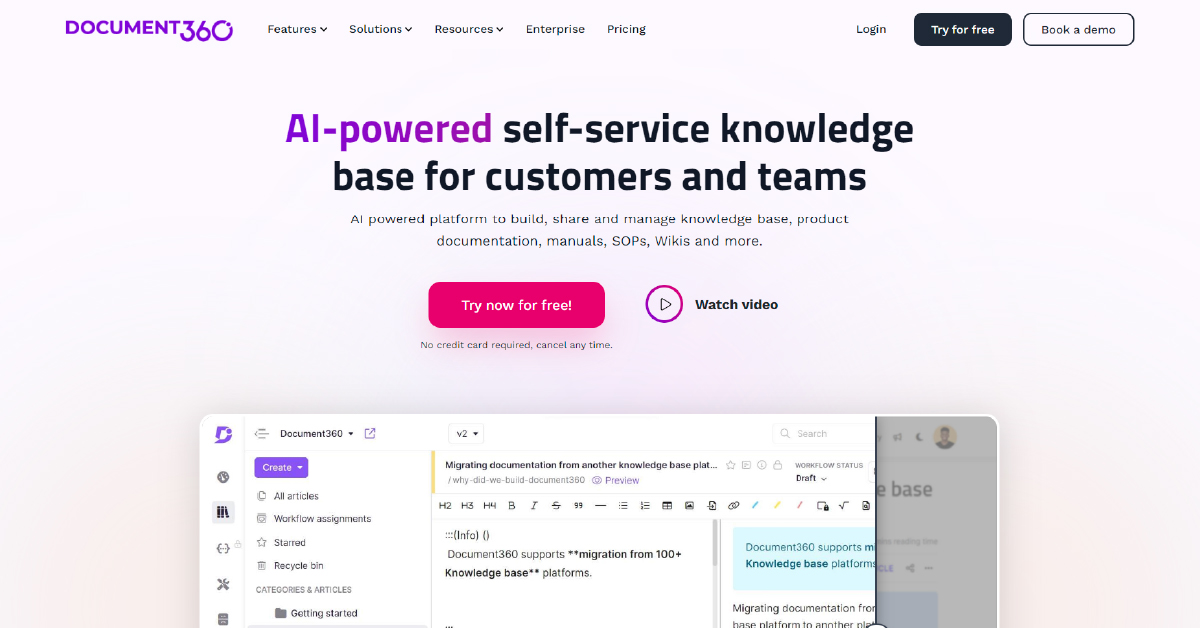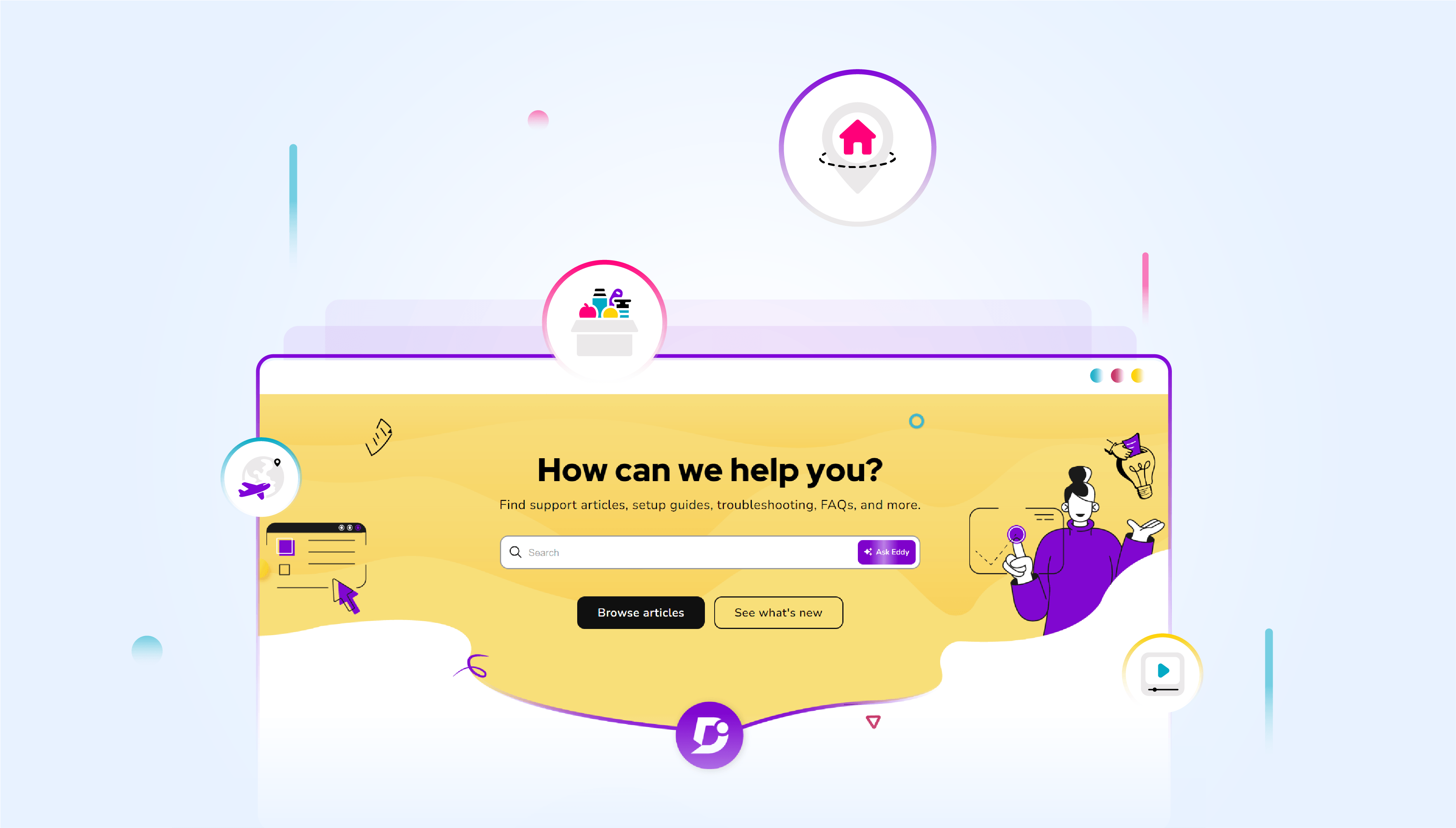Capturing and retaining information may not be commonly linked to the hospitality sector, but effective Knowledge Management is essential for delivering an exceptional customer experience and boosting profitability. Hospitality companies can make themselves more agile and responsive with Knowledge Management.
Fierce competition means that Knowledge Management has the potential to impact the customer experience. Fully informed staff and consistent customer service mean that customers will start to prefer you over rival businesses. Anyone can replicate a product, but you can’t copy a customer experience.
With customers taking advantage of more choices than ever, hospitality businesses can leverage Knowledge Management’s power to make improvements, remain competitive, and secure customer loyalty.
Making the most of hospitality is indeed lucrative – the market size of the global hospitality industry was worth $3953 billion in 2021.
Segments of Hospitality Industry
The broad hospitality industry encompasses many segments, such as travel and tourism, food and beverages, and accommodation. Each segment will require slightly different KM techniques to ensure that customers are getting the most out of their experience.
Travel and Tourism
In hospitality, the travel and tourism segment is competing with many global destinations and is the dominant segment within the industry, helping to generate revenue for all other segments by encouraging people to travel. Your airline, train line, cruise ship, or taxi service must be better than many other comparable options that take travelers worldwide, and successfully managing your knowledge means you can offer a better experience every time.
Food and Beverages
Offering superior food and beverages cannot be separated from the service customers receive when they visit your establishment or buy your products. Knowledge about how to prepare your products, how to serve them, and how to create memorable customer experiences combine to create huge ROI for Knowledge Management. From special occasions to more routine outings or purchases, businesses must cater to a broad range of customers.
Accommodation
Everyone needs somewhere to stay on their travels, but the question is, why should they pick you? Guests choose accommodation based on many factors but an effective use of Knowledge Management means that they will pick your business, every time. From hotels to BnBs to guest houses, to apartments, to caravans and resorts, any accommodation business can benefit from KM. Streamlining check-in, improving your welcome, and enhancing the stay can all be affected by KM.
Entertainment & Recreation
Entertainment and recreation is more broad, encompassing any activity that customers choose for enjoyment and relaxation. Cinemas, theaters, zoos, museums, and galleries all attract customers looking for uplifting experiences, and these businesses can use quiet periods to gather more knowledge that will attract more customers throughout the year.
Knowledge Management in the Hospitality sector
If the hospitality sector can successfully leverage its collective intangible assets, then Knowledge Management is essential. Approaching each customer afresh is like reinventing the wheel every time. If your staff know-how can be documented and shared across the organization, transcending time and space, then revenue will be much healthier.
If you think of a company like the Ritz, you’ll appreciate that they implement outstanding knowledge practices within the business in order to create the same consistent experience across their many hotels. Knowledge Management isn’t just restricted to knowledge work – even on-the-ground employees such as maintenance staff, customer service reps, and receptions need KM to excel.
Knowledge Management isn’t just suitable for big chains – any type of business within hospitality can use it to create better guest experiences. Managing knowledge enables you to effectively answer questions, rapidly solve problems, and enhance your brand. Customers will appreciate how well-informed you are and return for another visit.
Types of Knowledge in Hospitality
Knowledge is important, but it can also be categorized into different types relevant when trying to manage knowledge in your hospitality organization.
Task-Specific Knowledge
There are many tasks that must be conducted within hospitality, ranging from booking a ticket, checking a guest in, and answering live chat. It’s essential that your staff follow these procedures consistently and repeatedly so that guests can be assured of receiving the same experience no matter who they interact with.
Tacit Knowledge
Tacit knowledge is any knowledge that is held less explicitly and articulated through the personal skills and experience of each individual employee. Another individual may be able to learn tacit knowledge through watching a fellow employee demonstrate their experience in a domain such as welcoming guests to a restaurant – hard to quantify, hard to articulate, but you know it when you see it.
Transactive Memory
Next, transactive memory is when organizations can become aware of the individual expertise available within the collective and delegate roles and responsibilities based on it. Knowledge becomes therefore less of an individual endeavor and evolves into a collective mind with more potential.
Customer-Related Knowledge
Customer-related knowledge has anything to do with customers, so this could include demographic information such as age and socioeconomic status, buying patterns, and other business interactions, such as the usual length of stay. Being able to get to know individual customers through analyzing their data is what sets exceptional businesses apart from the average ones.
Network-Related Knowledge
Network-related knowledge is knowledge about any other relevant parties within your industry such as competitors, partners, or even vendors. Being able to understand how other businesses operate can give you insight into making improvements within your own company and ensure that it is at the cutting edge of innovation.
Market-Related Knowledge
Market-related knowledge refers to how the business operates within wider society, taking into account cultural patterns and trends, broadly speaking “the market”. Businesses can become more relevant and competitive if they are able to offer timely products and services that are able to anticipate and even shape consumer desires. Having accurate knowledge of the market tends to give you an edge.
Schedule a demo with one of our experts to take a deeper dive into Document360
Book A Demo
Why Does Knowledge Management Matter in Hospitality?
We’ve talked a lot about the different types of knowledge in hospitality, but we haven’t explicitly stated why Knowledge Management matters within this industry.
Enhanced customer experience
Customer experience should be your primary focus when designing products and services to offer to customers. Equivalent products are relatively easy to find within a crowded marketplace, but amazing customer experiences are memorable, keep customers coming back for more and telling all their friends. You can enhance the customer experience by retaining, managing, and sharing relevant knowledge internally.
Consistent service delivery
Sharing your knowledge effectively across the organization results in a much more consistent service delivery for customers. It doesn’t matter which branch or division your customers come into contact with – staff always know how to help them and offer the same experience every time. Handbooks, policies and procedures all contribute to consistent service delivery.
Efficient problem solving
It’s likely that within your hospitality organization, the same problems have been encountered before. By documenting solutions and troubleshooting techniques, you prevent staff from having to reinvent the wheel every time and waste valuable time. Being able to find answers instantly in an internal knowledge base is a huge benefit for your business. If customers read reviews that show businesses have not improved upon their mistakes, this could be very off-putting.
Competitive edge
You have an edge over your competitors when you cultivate knowledge for your business. It helps you develop new products faster, offer superior service, become the best in the industry, and amaze your customers. Managing knowledge properly means you can spend less and become a more efficient organization, helping you weather tough times and capitalize on opportunities.
Also Read: How to write instructions for Medical Device Documentation?
Effective Implementation Strategies for Managing Knowledge in Hospitality
Of course, once you’ve decided Knowledge Management is essential for your hospitality business, you then need to think about how to effectively implement it within the organization.
Identifying Knowledge Sources
First, identify the knowledge sources within your organization. Knowledge can come from anywhere, whether that’s customer data, tacit knowledge from staff, documents spread out across the organization, or internal policies. It’s your job to effectively bring together these disparate sources of knowledge and ensure they can be accessed by every member of staff who needs them at any level.
Effectively Channeling Knowledge
Once you know where this knowledge is, you must effectively channel it through your organization. Knowledge follows particular patterns in every company and is suitable for different purposes. For example, you may want to capture your tacit knowledge in organizational networks such as communities of practices which enables like-minded professionals to share ideas and solutions. More straightforward, task-based knowledge can be documented in a knowledge base.
Role-Based Knowledge
Employees in particular roles, such as customer service, will have role-based knowledge that can help their fellow associates. Capturing best practices, case studies and important policies is the job of Knowledge Management.
Technology-Centric and People-Centric knowledge
Some knowledge is captured using technology, such as customer data in CRMs and customer support tools, while other knowledge is held in the heads of people. Both types of knowledge can be incredibly valuable in accelerating your customer experience strategy and raising profit margins, and knowing how to tell the difference is crucial.
Process knowledge
Some knowledge is embedded in the processes of your organization, meaning that networks of people instinctively understand how to perform specific procedures but it is not necessarily made explicit anywhere. Also called organizational knowledge, it is tied to the context but can be documented properly to standardize and achieve consistency.
Also Read: How to Write Standard Operating Procedure with Examples & Template
Tools for Effective Management of Knowledge in Hospitality

Document360 is the perfect internal knowledge base tool designed to help companies manage knowledge, powered by AI and exceptional at helping you realize value from knowledge. Knowledge bases like Document360 are easily adopted by hospitality companies focused on customer experience because they don’t take lots of time to learn. You can start obtaining value right away.
Other tools available are:
- Document management tools
- Wikis
- CRM (Customer Relationship Management) systems
- Databases
- Collaboration tools
Promoting a Knowledge-Sharing Culture
You can implement all the tools you like but, if you don’t develop a thriving knowledge-sharing culture, then your results will be zero. Educating employees about the value of sharing knowledge and how knowledge-sharing makes their jobs easier and creates happier customers, is essential to Knowledge Management. Cultivating employee buy-in is a step you can’t skip if you don’t want your KM efforts to fail.
Employee Involvement and Evaluation
Finally, you’ll need to involve your employees in the process of managing knowledge so that you can evaluate whether your strategy is successful. Not only must employees capture and document knowledge for you, but they also need to access and use their knowledge in the course of their jobs. Knowledge that goes stale in a system that is never used is a waste of time and resources – worse than failing to document at all.
The Future of Knowledge Management in Hospitality
Companies in the hospitality industry will increasingly turn to Knowledge Management to gain a competitive edge. It’s no longer enough to offer a superior product or service – it’s customer experiences that earn you loyalty and advocacy, enabling your business to flourish even through the toughest of times. Having to struggle through global crises like the pandemic showed businesses how fragile they really are.
Hospitality companies across tourism, accommodation and more will learn how to use knowledge to their advantage instead of allowing it to slip through their fingers or taking it for granted. Tools driven by AI will make Knowledge Management even more efficient, so the process of gathering and managing knowledge doesn’t slow you down. AI is the next step in KM, allowing organizations to automate routine tasks and focus on more creative work.
Wrapping Up
The fast-paced, competitive nature of the hospitality industry may make you think you don’t have time for Knowledge Management. Nothing could be further from the truth, as creating the most powerful and alluring customer experiences relies on effective knowledge sharing within the organization. Without knowledge, efforts will be haphazard and fall far short of the mark.
Utilizing AI-powered knowledge base tools such as Document360 not only simplifies your workflow but also enhances the user experience for your hospitality staff. Streamlining the process of capturing knowledge becomes more efficient, particularly as your business landscape evolves with new products and evolving procedures. Document360 serves as a secure repository for essential knowledge, easily accessible to all members of your organization.
Organizations without documented knowledge will lag behind their competitors, and customers, travelers, and guests will be choosing alternative options for their experiences. Knowledge Management streamlines operations improves customer experiences, and boosts revenue.




 –
– 

